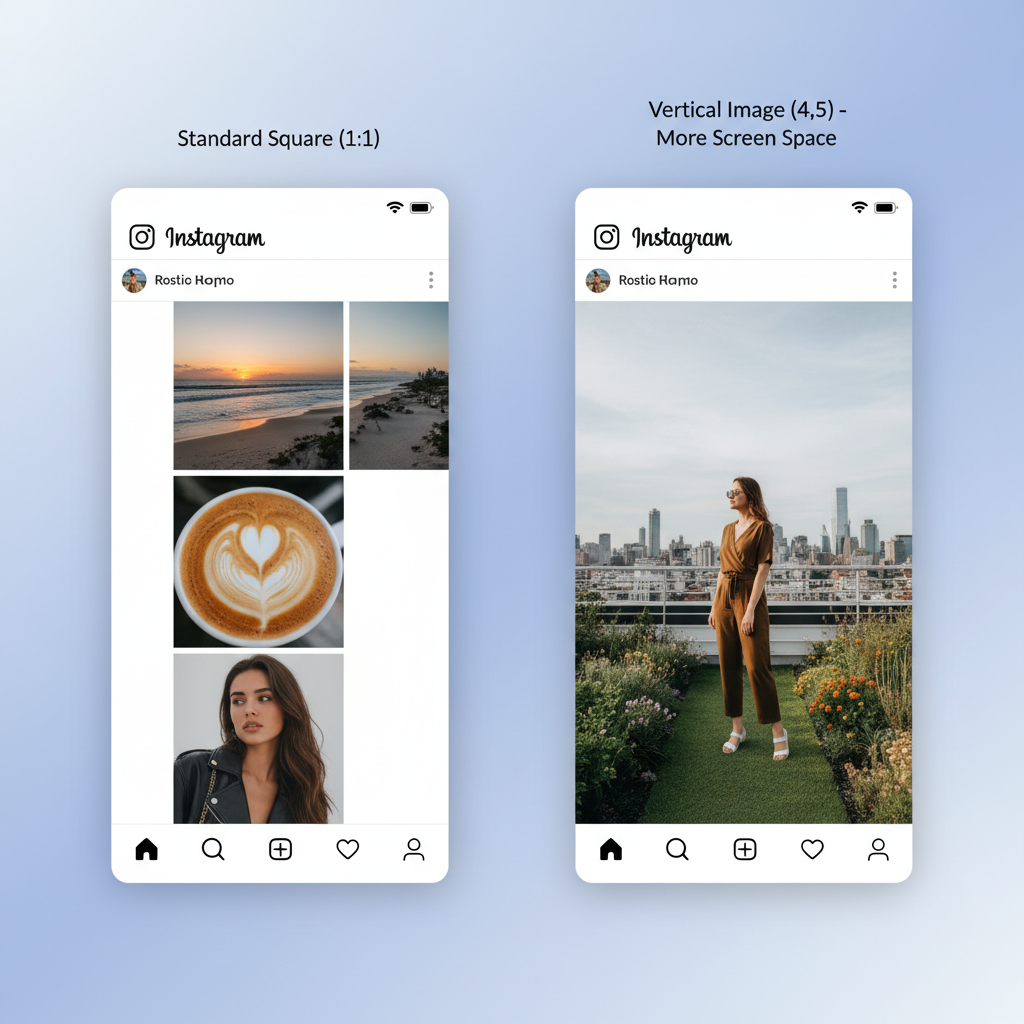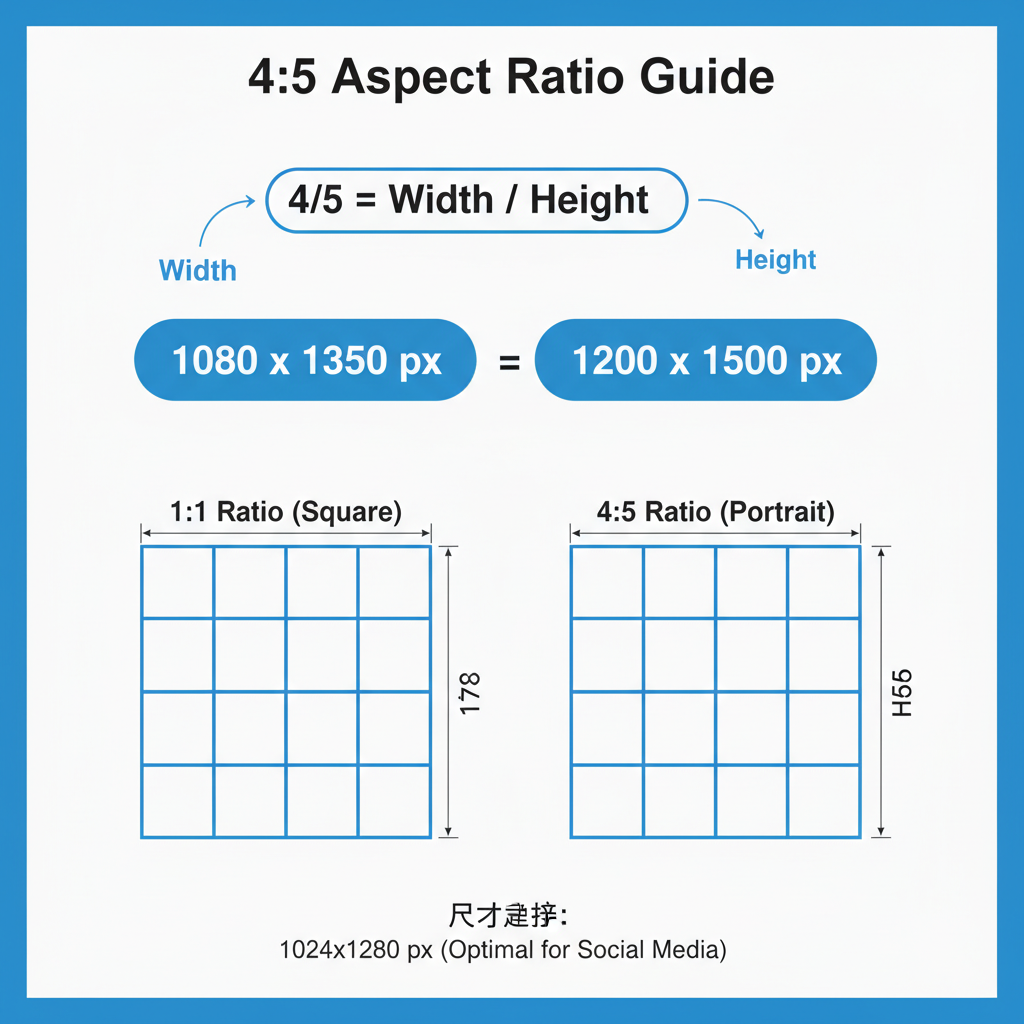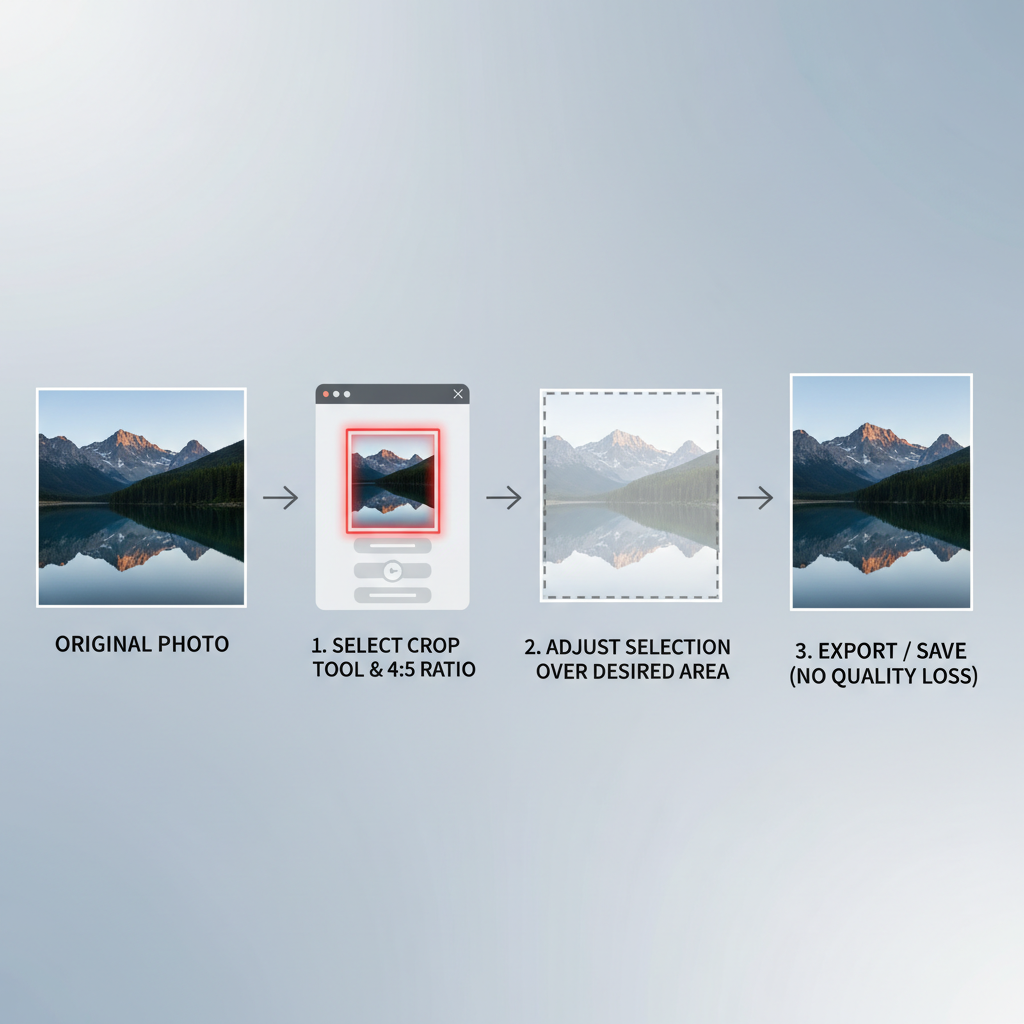4:5 Aspect Ratio Resolutions for Social Media and Design
Learn how to use 4:5 aspect ratio resolutions for Instagram and social media, with pixel guides, cropping methods, and optimal design practices.

Introduction to the 4:5 Aspect Ratio for Social Media Success
The 4:5 aspect ratio is one of the most effective formats for boosting content performance on social platforms—especially Instagram. This portrait-oriented proportion maximizes vertical space on mobile screens without becoming excessively tall, making it perfect for catching user attention in crowded feeds. Compared to square (1:1) or vertical (9:16) formats, 4:5 offers a sweet spot between visual impact and layout flexibility. Creators, photographers, designers, and marketers alike rely on it for Instagram posts, online portfolios, and promotional materials.

---
Understanding the 4:5 Aspect Ratio in Pixels
An aspect ratio describes the proportional relationship between width and height. For 4:5, every 4 units of width correspond to 5 units of height—yielding a frame taller than it is wide, but less extreme than full vertical orientations.
Example:
If your width is 1080 pixels, the height should be 1350 pixels to maintain a perfect 4:5 ratio.
Formula to calculate height from width:
height = (width ÷ 4) × 5Formula to calculate width from height:
width = (height ÷ 5) × 4These calculations are essential to resize or crop images accurately without distortion.

---
Common 4:5 Resolutions and Use Cases
While 4:5 stays proportionally consistent, resolution varies across projects and platforms. The list below shows tested combinations to ensure compatibility and avoid unwanted compression:
| Width (px) | Height (px) | Use Case |
|---|---|---|
| 1080 | 1350 | Instagram portrait posts |
| 1200 | 1500 | Web portfolio images |
| 800 | 1000 | Lightweight blog images |
| 2000 | 2500 | High-resolution prints |
By sticking to these resolutions, you help preserve detail and meet platform specifications.
---
Why 4:5 Dominates Instagram and Similar Social Platforms
Portrait-format posts in 4:5 aspect ratio take up more vertical space in a feed than square images, offering:
- Enhanced visibility — more screen coverage for users scrolling on mobile.
- Higher engagement — improved chances for likes, shares, and comments.
- Native support — reduction of unwanted cropping or resizing by Instagram.
Platforms such as Facebook and Pinterest also handle portrait images well, though specifications may differ slightly.

---
Pros and Cons of the 4:5 Aspect Ratio in Photography & Design
Advantages
- Greater presence in mobile feed layouts
- More visible details without excessive scrolling
- Optimized native display for key social channels
Disadvantages
- Less suited for widescreen desktop viewing
- Demands precise composition to avoid awkward framing
- May require extra adjustments if sourced images aren’t already in 4:5
---
Cropping Images to 4:5 Without Quality Loss
To crop effectively while maintaining quality:
- Work with the highest resolution original to prevent pixelation.
- Compose carefully—place key elements within central safe zones.
- Lock aspect ratio settings in editing tools to 4:5 for accuracy.
Photoshop Example:
- Select Crop Tool (C)
- Enter `4` and `5` in aspect ratio fields
- Adjust frame, ensuring subject focus, then apply
Python (Pillow) Example:
from PIL import Image
img = Image.open('photo.jpg')
width, height = img.size
target_height = (width / 4) * 5
new_img = img.crop((0, 0, width, int(target_height)))
new_img.save('photo_4_5.jpg')This method mathematically ensures the correct ratio rather than relying on guesses.
---
Recommended Tools for Creating 4:5 Content
- Adobe Photoshop / Lightroom — best for professional precision edits
- Canva — easy drag-and-drop with preset ratios
- Figma — ideal for prototyping social layouts
- Snapseed — mobile-friendly with strong cropping controls
- InShot — great for quick photo and video ratio adjustments
Most of these tools include built-in aspect ratio presets, simplifying the workflow.
---
Aspect Ratio Comparison for Content Strategy
Deciding between ratios depends on your audience and platform focus:
| Aspect Ratio | Best Use | Engagement Potential | Platform Examples |
|---|---|---|---|
| 4:5 | Portrait photos/posts | High | Instagram feed, Facebook posts |
| 1:1 | Square images | Moderate | Instagram grid, profile images |
| 9:16 | Full vertical videos/photos | Very high (story/reels) | Instagram stories, TikTok, Snapchat |
Pro tip: Pick the ratio based on the platform’s feed behavior and your content’s intent.
---
Best Practices for Exporting and Uploading 4:5 Images
To maintain crisp and vibrant presentation:
- Export at highest quality setting within platform limits
- Use sRGB color profile for consistent color on all devices
- Skip aggressive sharpening to prevent artifact amplification
- Descriptive file naming — helps SEO and asset organization
- Test post-upload for both mobile and desktop appearance
While all platforms compress images, having the best-quality source file reduces visible degradation.
---
Conclusion: Leverage the 4:5 Aspect Ratio for Impact
The 4:5 aspect ratio is a proven format for maximizing visibility and engagement in social feeds. Whether you’re posting branded images, showcasing visual art, or sharing photography:
- Frame shots with vertical composition in mind
- Rely on recommended resolutions for platform compatibility
- Utilize professional tools to lock in ratio during editing
- Export with care to preserve visual integrity
By mastering 4:5, you ensure your content not only looks sharp but also performs effectively across mobile-first platforms.
Ready to elevate your social visuals? Start applying the 4:5 aspect ratio today and watch your engagement grow.


